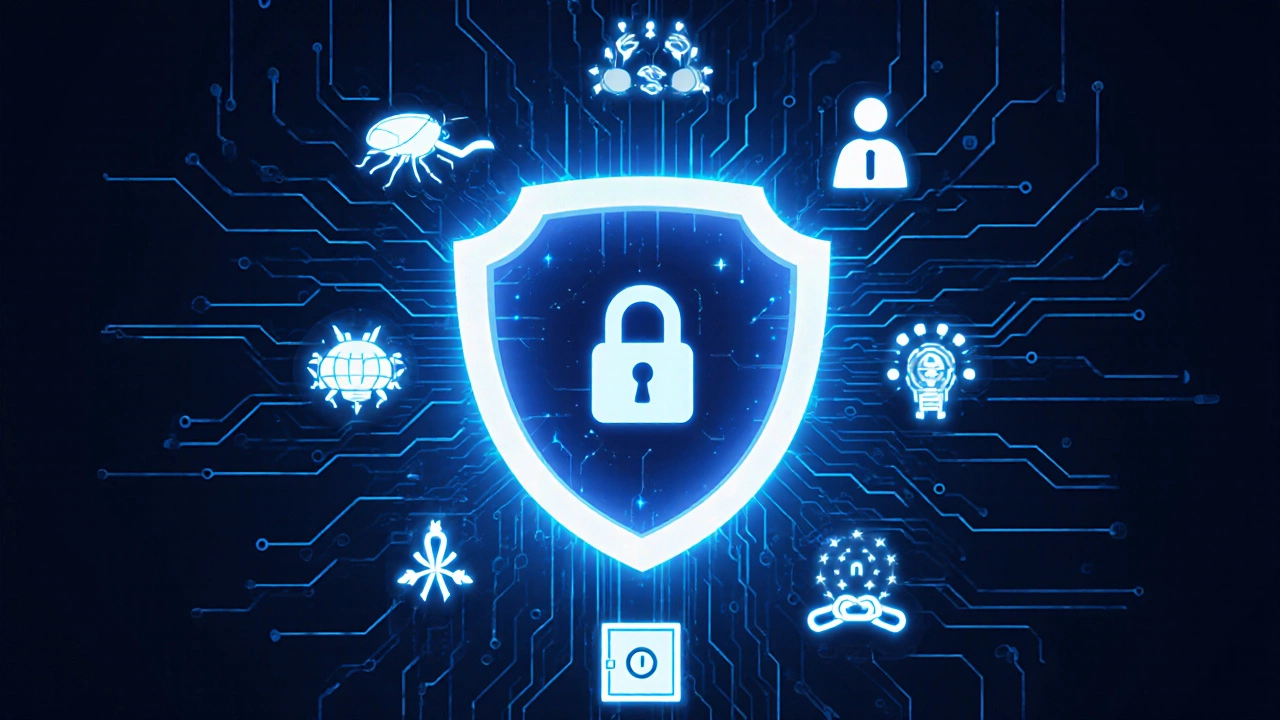Cyber Crime in India: What It Is and Why It Matters
Every day we hear about someone getting hacked, a fake email stealing money, or a social media post spreading false info. That’s cyber crime – illegal activities that happen over the internet or on digital devices. In India, the rise of smartphones and cheap data has made these crimes more common, and the impact can be personal, financial, or even criminal.
Understanding cyber crime isn’t just for tech geeks. Whether you run a small business, study in college, or simply shop online, you could be a target. The good news is that the Indian government has put laws in place, and there are steps you can take right now to lower your risk.
Common Types of Cyber Crime
Here are the most frequent scams you’ll run into:
Phishing attacks – fake emails or messages that look like they’re from banks, government agencies, or friends. They ask for login details or money. One click can hand over your credentials.
Identity theft – criminals steal personal data like AADHAAR numbers, PAN cards, or phone numbers to open fake accounts or take loans in your name.
Ransomware – malicious software that encrypts your files and demands a payment to unlock them. Small businesses often fall victim because they lack backups.
Online fraud – fake e‑commerce sites, fraudulent investment schemes, and counterfeit product listings that trick you into paying for nothing.
Cyberbullying and harassment – abusive messages, revenge porn, or doxxing that can ruin reputations and mental health.
Legal Remedies and Penalties
The main law governing cyber crime in India is the Information Technology Act, 2000. It defines offenses like hacking, data theft, and publishing illegal content. Amendments in 2008 added stricter punishments and introduced the concept of “cyber contraventions”.
Under the IT Act, penalties range from fines of up to ₹5 crore to imprisonment of up to three years, depending on the severity. For serious offenses such as identity theft or ransomware, courts can hand down up to ten years of jail time.
If you’re a victim, you can file a complaint with the local police station or directly with a cyber crime cell. Provide all evidence – screenshots, emails, transaction records – to speed up the investigation.
Besides criminal action, you can also pursue civil claims for damages. Many courts now accept online filing of cases, making it easier to seek compensation without multiple trips.
Practical Steps to Stay Safe
Start with strong passwords. Use a mix of letters, numbers, and symbols, and enable two‑factor authentication wherever possible.
Keep your software, operating system, and apps up to date. Updates often patch security holes that hackers exploit.
Be skeptical of unsolicited messages. If an email asks for personal info or money, verify it through an official channel before responding.
Back up important files regularly on an external drive or a trusted cloud service. If ransomware hits, you can restore your data without paying.
Finally, educate yourself and family members. Talk about safe browsing habits, the danger of clicking unknown links, and how to report suspicious activity.
Cyber crime will keep evolving, but with the right knowledge and a few simple habits, you can protect yourself and stay one step ahead of the attackers.

Cybersecurity Threats Explained: What It Fights Against
Learn the main dangers cybersecurity battles-malware, phishing, ransomware, DDoS, insider threats, and more-and how a cyber crime lawyer fits in.

Top Country for Cyber Crime: Global Rankings, Trends, and Shocking Facts
Discover which country leads the world in cyber crime, learn about global cybercrime hotspots, and get helpful cyber security tips to stay safer online.

Why So Few Cyber Criminals End Up Behind Bars: Cyber Crime Law Explained
Ever wondered why most cyber criminals never see a jail cell? Get the inside scoop on cyber crime law, the real obstacles to digital justice, and eye-opening facts.

Top Examples of Cyber Crime: Real-World Cases and How to Steer Clear
Get the low-down on real cyber crime cases, how cybercriminals operate, and practical ways to protect yourself online. Loads of facts and simple tips.

What Can the Cyber Police Do? Exploring Their Real Powers
A lot of people think the cyber police are like tech wizards or movie hackers, but their job is a mix of problem-solving and digital footwork. This article explains exactly what cyber police can do when it comes to fighting cybercrime, from tracking online scams to collecting digital evidence. You'll learn what happens behind the scenes during a digital investigation and when to reach out for help. There are also some smart tips for keeping yourself safe before you ever need them. If you want to know what real power the cyber police have, you're in the right place.

Who Monitors Cyber Crime? Straight Talk for Worried Minds
Ever wondered who actually keeps an eye on cyber criminals? This article breaks down the real people and organizations keeping the digital world in check. You’ll find out about the right authorities, how cyber crime is tracked, and who really steps in when something goes wrong online. Plus, you’ll get a few smart tips in case you ever face a cyber attack yourself. Get ready to finally clear up the mystery about who’s actually protecting you from hackers.

Cyber Hackers: Who They Are and Why You Should Care
Ever wondered what cyber hackers really do? This article breaks down who these digital criminals are, how they operate, and why they pose a threat to everyone online. Find out the truth behind the hoodie stereotypes, the sneaky tactics, and how cyber crime lawyers fit into the fight. You'll pick up incident response tips along the way. Stay alert—just knowing the basics can save you a lot of trouble.

Cyber Detective: Who They Are and What They Really Do
Ever wonder what a cyber detective does? This article breaks down how these digital investigators track down hackers and fraudsters, explaining their role in modern cyber crime cases and why they're key allies for lawyers dealing with online threats. We’ll talk about their daily tools, skills you’d need to become one, and give you surprising facts about their real world work. Tips on keeping your data safe and what to do if you’re targeted are also covered. It’s direct, practical advice for anyone curious about digital protection or a possible cyber law career.

Do Banks Refund Scammed Money? What Really Happens After Fraud
Got scammed and wondering if your bank will give your money back? This article explains how banks handle fraud claims, what influences your chances of a refund, and how to report a cyber scam. Find out what you need to do as soon as you spot suspicious transactions and discover which scams banks will cover. Real tips on working with your bank, dealing with delays, and when to call in a cyber crime lawyer.

Who Fights Cyber Crime? Unmasking the Real Defenders
Cyber crime is booming, but it's not just police and computer whizzes leading the charge—cyber crime lawyers play a huge role too. This article digs into who actually fights cyber crime and what their battles look like. From government agents to legal experts, you'll get the real picture of the frontline. You'll also pick up some surprising facts and useful tips for staying safe online. It's not all spy movies; cyber crime fighters use brains, laws, and a whole lot of common sense.

Cyber Crime: What's the Most Common Type and How to Dodge It
Wonder which cyber crime tops the charts these days? This article breaks down the most common types, why people fall for them, and what you can do to avoid being the next victim. It’s packed with real-life tips to help you stay ahead of hackers. If you ever need a cyber crime lawyer, you'll know what evidence matters most. You’ll walk away with practical steps to keep your digital life safe.

Understanding the Top 5 Cyber Crimes: What You Need to Know
Cyber crimes have evolved with digital advancement, posing significant challenges for individuals and businesses worldwide. Delving into the most prevalent cyber crimes, we explore their impact, from data breaches to phishing scams. By understanding these threats, you can better protect yourself and seek help from legal experts when needed. Stay informed to navigate the digital realm securely.